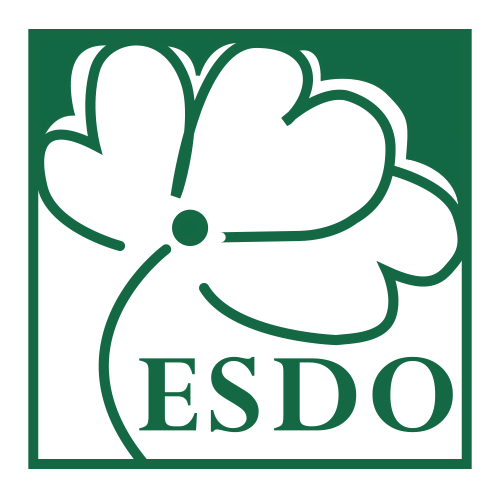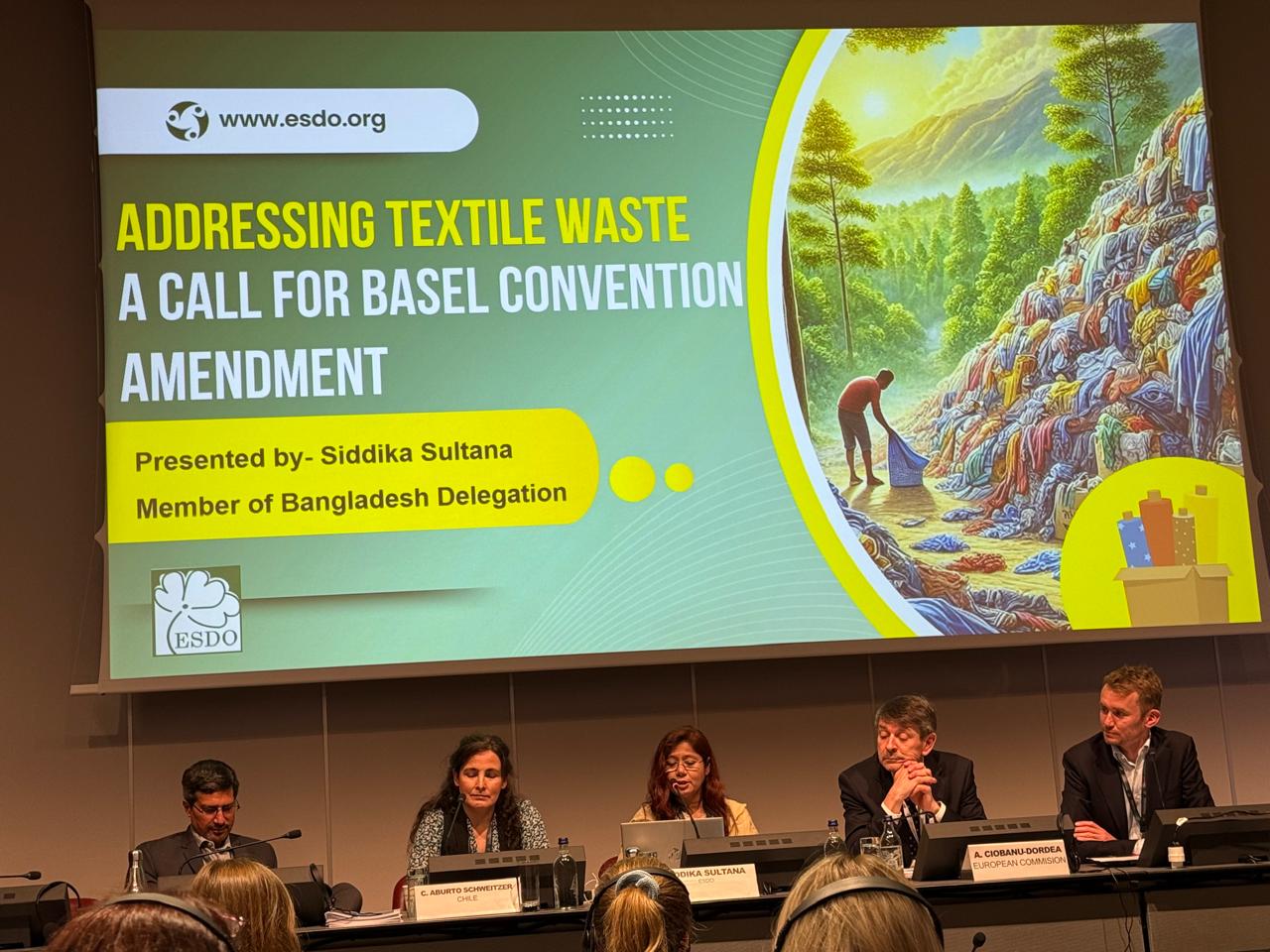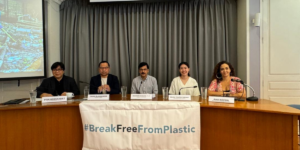Siddika Sultana, Executive Director of ESDO, delivered this critical presentation at the 2025 Conferences of the Parties (COPs) to the Basel, Rotterdam, and Stockholm (BRS) Conventions during a side event focused on chemical and waste management challenges. Her intervention highlighted the urgent need to address textile waste through amendments to the Basel Convention, emphasizing its disproportionate impacts on Global South nations like Bangladesh.
Key Highlights:
Global Textile Waste Crisis:
1. Asia generates millions of tons of textile waste annually, with 67% ending in landfills and only 1% recycled.
2. Synthetic textiles (60% plastic-based) contribute to 9% of microplastic pollution, contaminating food chains (humans ingest ~50,000 microplastics/year).
Health & Environmental Hazards:
1. Chemical exposure from textiles is linked to endocrine disruption, respiratory diseases, and neurological effects.
2. Case Study (Nayanjholi Khal-Ghosbag, Bangladesh):
3. Water sources are poisoned by dye residues and fabric scraps, causing skin diseases, rashes, and undrinkable groundwater.
Call to Action:
1. Amend the Basel Convention to regulate transboundary textile waste trade and hold producers accountable.
2. Promote circular economy models and stricter waste management policies in textile-producing nations.
“The hidden cost of fast fashion is paid by communities like Nayanjholi Khal-Ghosbag, where children drink poisoned water and mothers battle rashes. The Basel Convention must evolve to stop textile waste colonialism—because no one should suffer for the world’s throwaway culture.” — Siddika Sultana, Executive Director, ESDO



